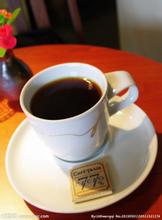Bolivian snow vein manor coffee grinding treatment variety price production area taste introduction
Lake Titicaca Copacabana
Country: Bolivia
Altitude: 3812m
Producing area: Lake Titicaca
Baking degree: medium baking
Treatment: washing
Variety: iron pickup
Producer: tapping Baigabana small farmers
Flavor: dried aromas of roasted nuts and almonds, orange and pomelo
Lake Titicaca is located on the Coaya Plateau on the border between Bolivia and Peru. It is the highest and largest freshwater lake in South America, one of the highest freshwater lakes in the world, and the highest navigable lake in the world. It is the third largest lake in South America (after Lake Maracaibo and Patus lagoon). The advantage of Bolivian coffee lies in high altitude and excellent coffee varieties. Here the traditional Tibica and a small amount of Kaddura are highly valued in the world market. In the past, coffee trees in Bolivia used to act as hedges and ornaments around the garden. Real commercial production began in the early 1950s. The coffee industry in Brazil was badly damaged by the great frost in 1957, while Bolivia (Bolivia) benefited and developed rapidly. Bolivian coffee is grown at an altitude of 18000 to 2670 meters above sea level, and the Arabian washed coffee beans are exported to Germany and Sweden. They are not the best in taste today and have a bitter taste.

Important Notice :
前街咖啡 FrontStreet Coffee has moved to new addredd:
FrontStreet Coffee Address: 315,Donghua East Road,GuangZhou
Tel:020 38364473
- Prev

Introduction to the characteristics of coffee grindability treatment in Fenghuang Manor, Costa Rica
Other kinds of Brazilian coffee, such as Rio and Parana, can be produced in large quantities because they do not need too much care. Although the taste is rough, it is a kind of good and cheap coffee. It has its own standard because it is distributed all over the country and its solid quality varies. It has its own standard (NO.2~NO.8 according to the number of sundries, NO.13~NO.19 according to the size of beans, and six grades according to taste).
- Next

Tanzania Arusha Coffee Estate Flavor Description Processing Characteristics Variety Taste Introduction
In early 2010, there was a new movement towards political reconciliation on Sang Island, with the Revolutionary Party and RUF agreeing on the formation of a Unity Government on Sang Island. In July of the same year, the referendum in Sang passed a resolution on the establishment of a national unity government system. In November, the general election in Sang was successfully held. The national unity government was established on Sang Island. Sang President, Second Vice President and 11 ministers came from the Revolutionary Party. Sang First Vice President and 8.
Related
- Does Rose Summer choose Blue, Green or Red? Detailed explanation of Rose Summer Coffee plots and Classification in Panamanian Jade Manor
- What is the difference between the origin, producing area, processing plant, cooperative and manor of coffee beans?
- How fine does the espresso powder fit? how to grind the espresso?
- Sca coffee roasting degree color card coffee roasting degree 8 roasting color values what do you mean?
- The practice of lattes: how to make lattes at home
- Introduction to Indonesian Fine Coffee beans-- Java Coffee producing area of Indonesian Arabica Coffee
- How much will the flavor of light and medium roasted rose summer be expressed? What baking level is rose summer suitable for?
- Introduction to the characteristics of washing, sun-drying or wet-planing coffee commonly used in Mantenin, Indonesia
- Price characteristics of Arabica Coffee Bean Starbucks introduction to Manning Coffee Bean Taste producing area Variety Manor
- What is the authentic Yega flavor? What are the flavor characteristics of the really excellent Yejasuffi coffee beans?

